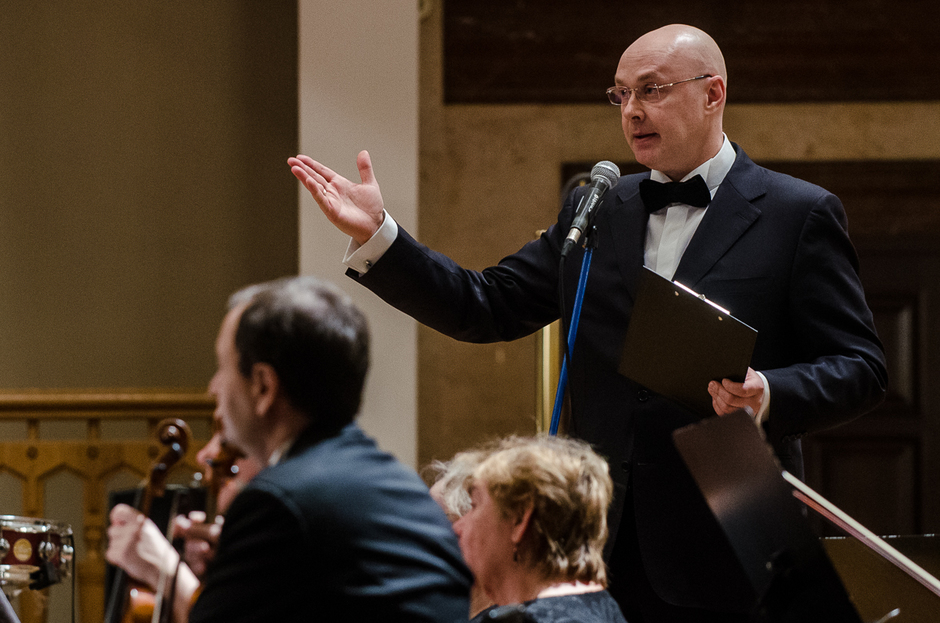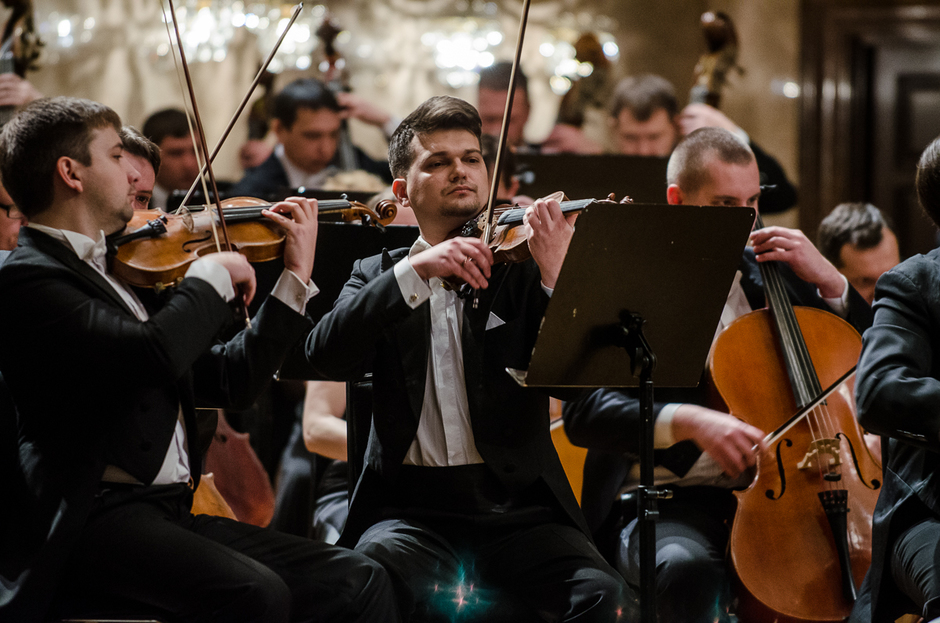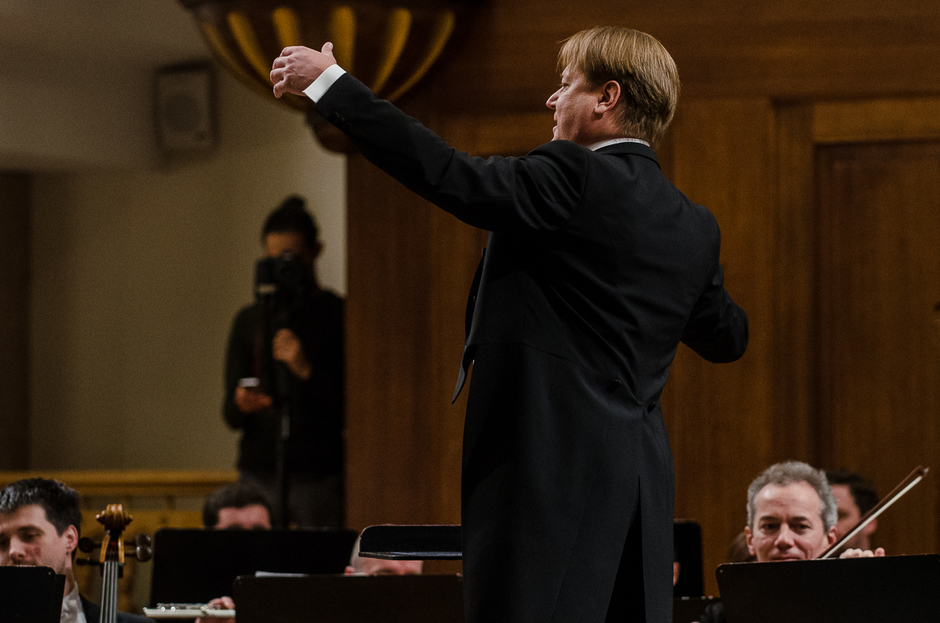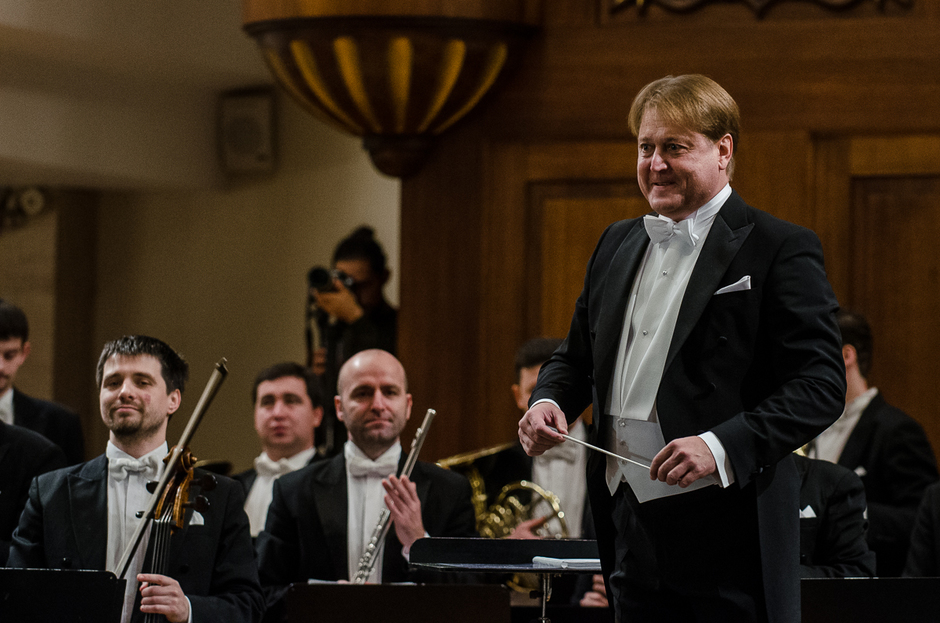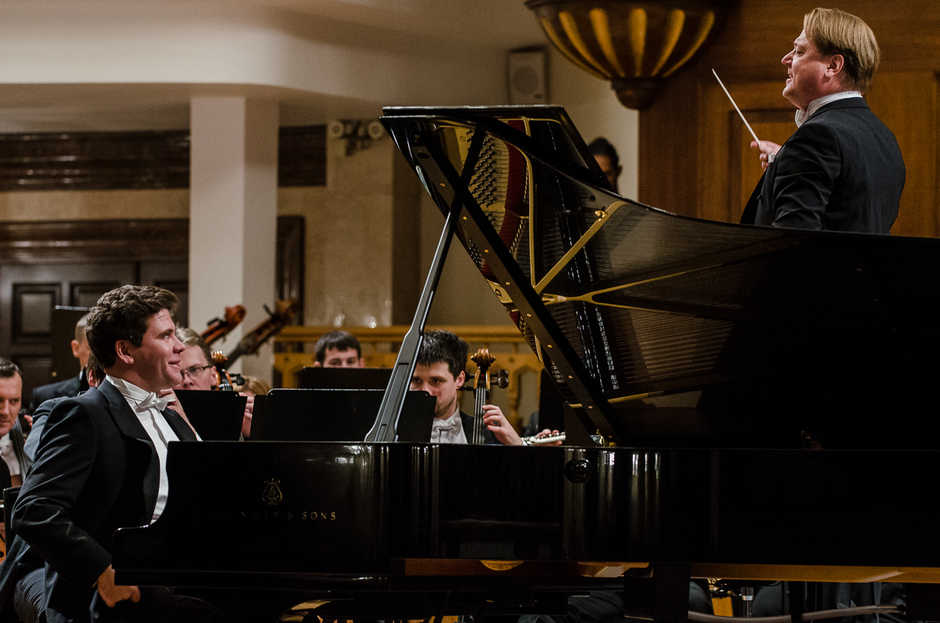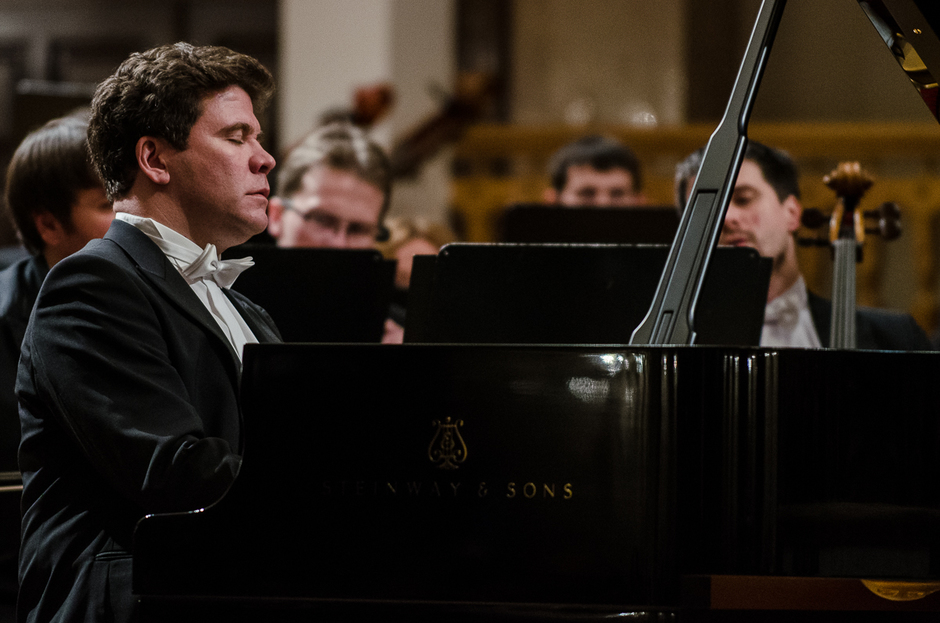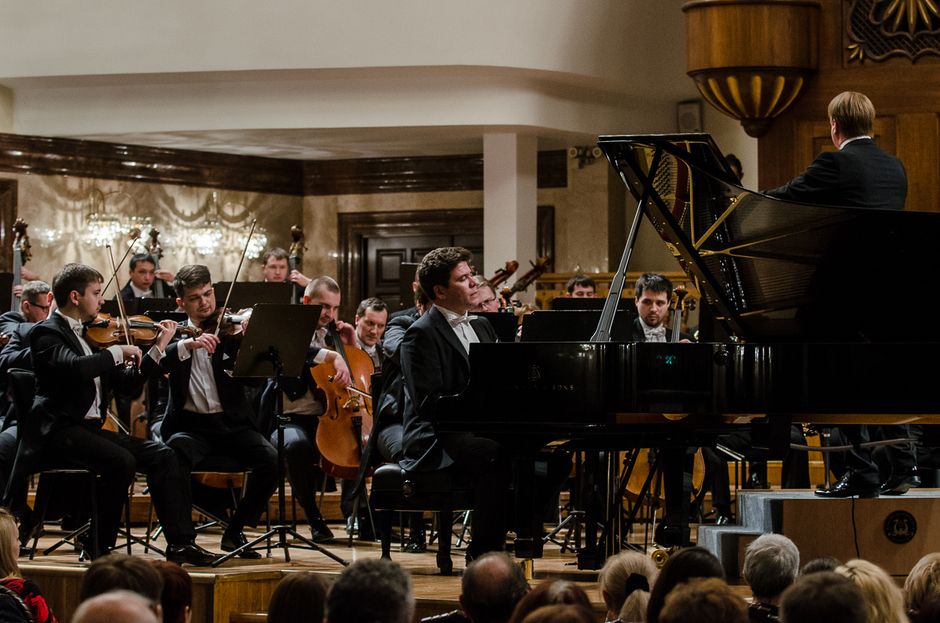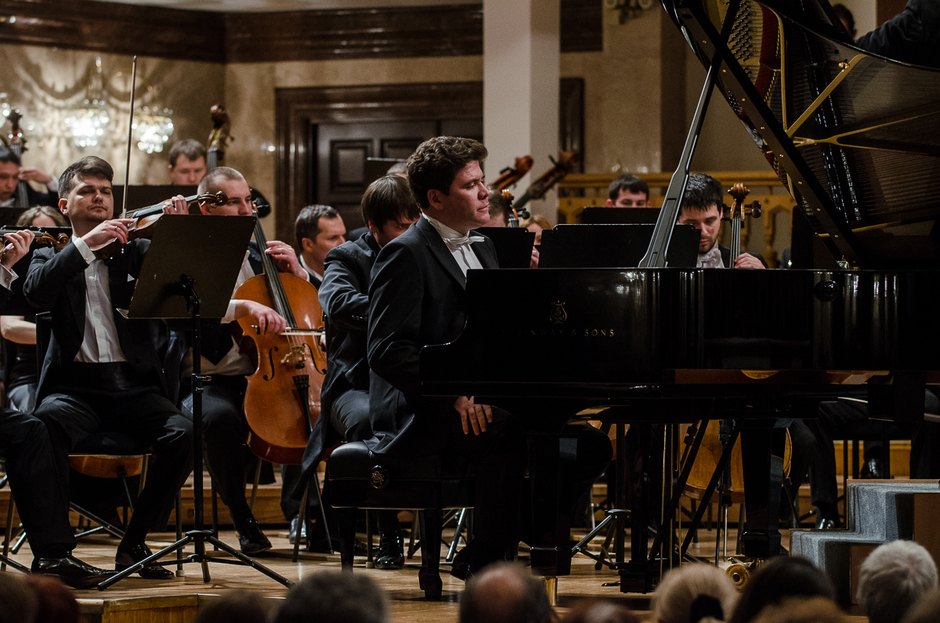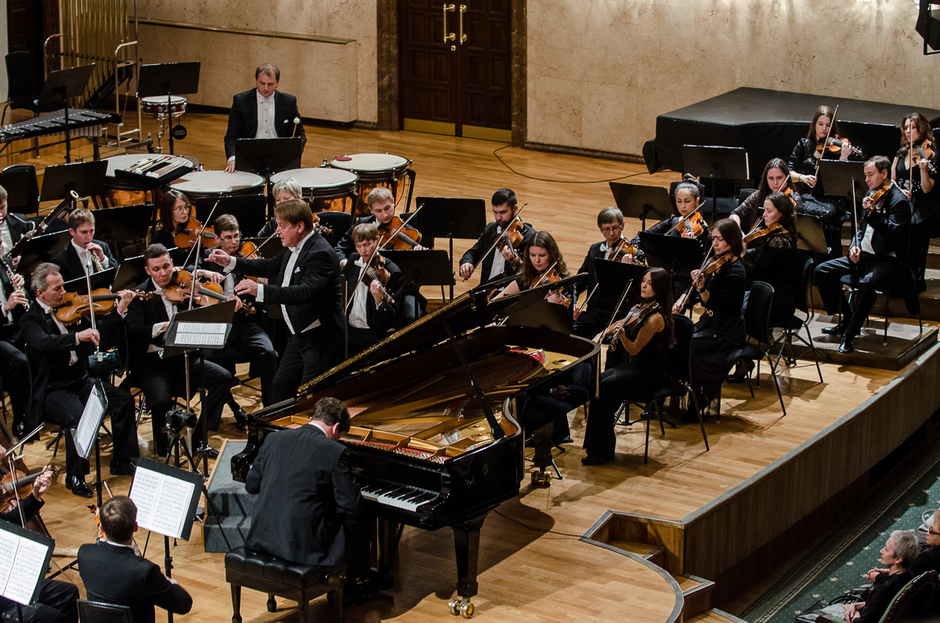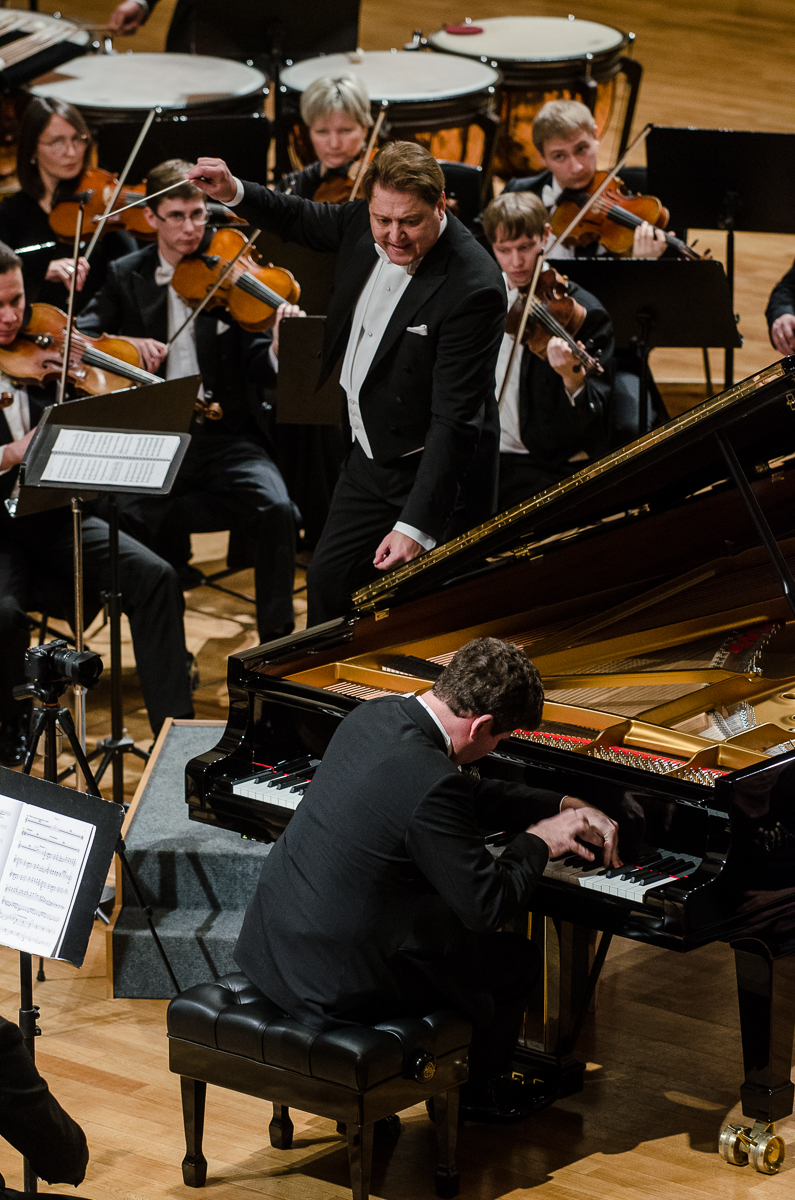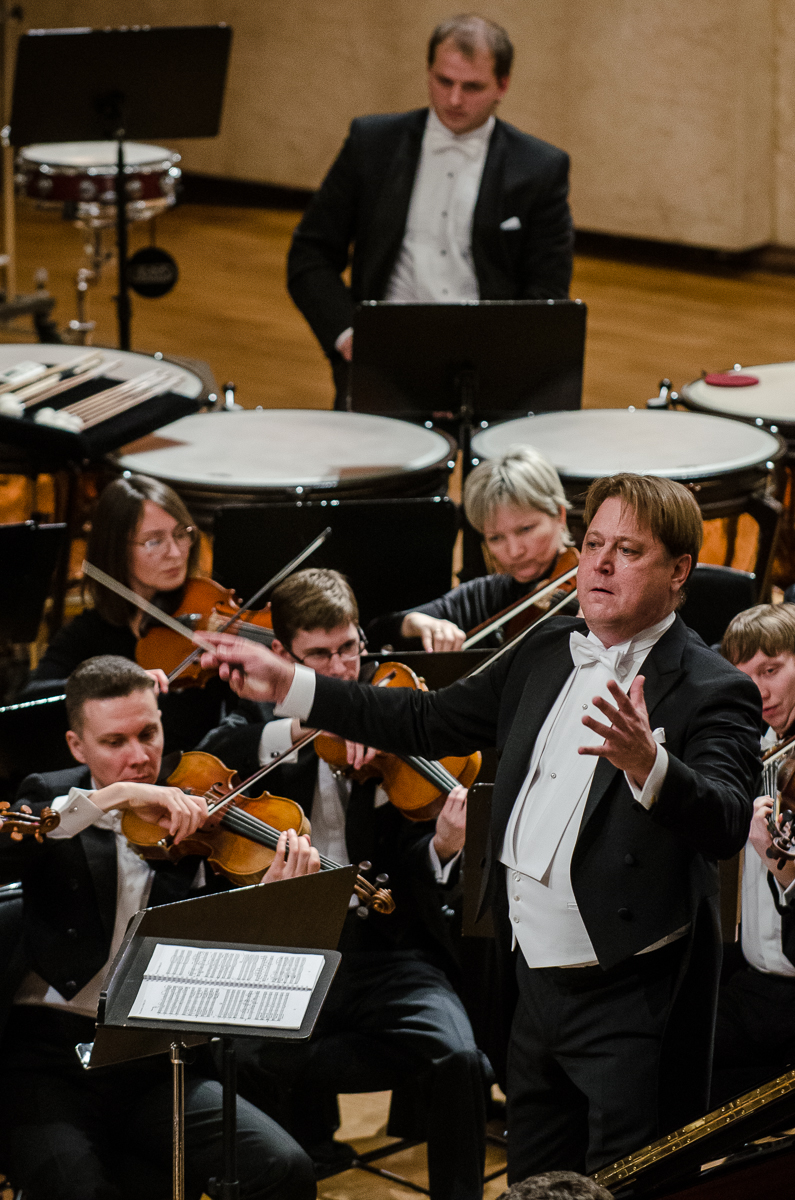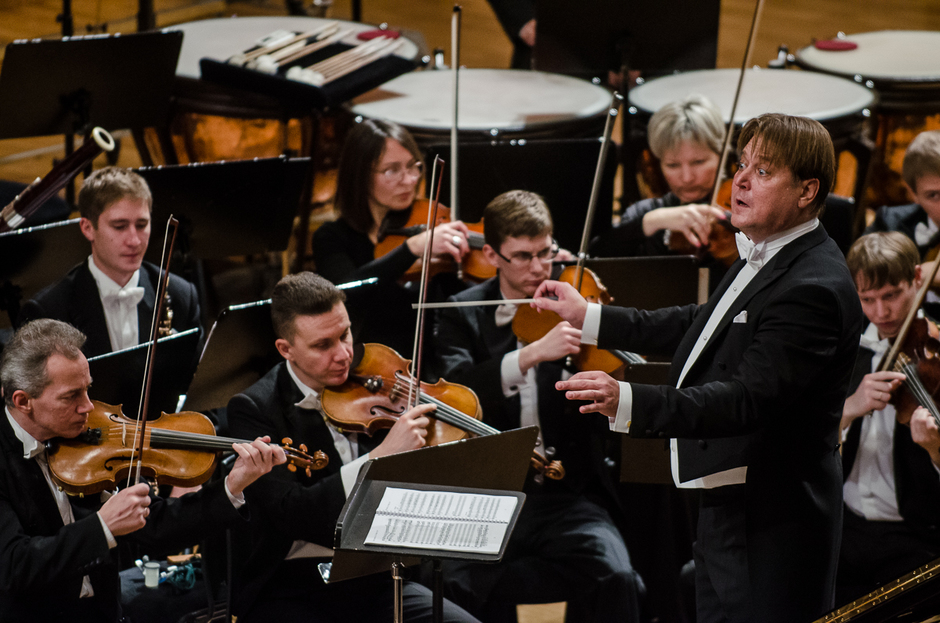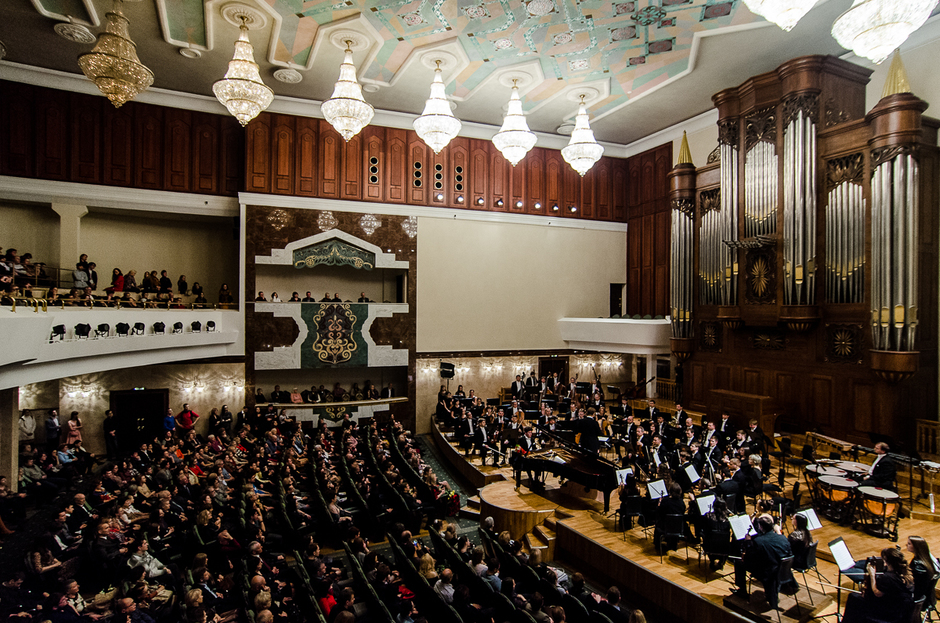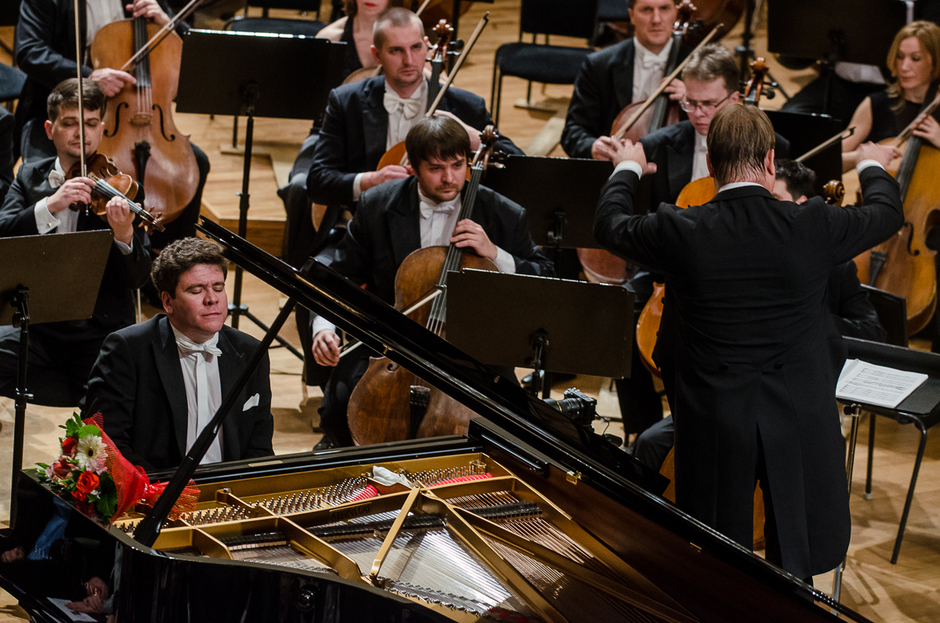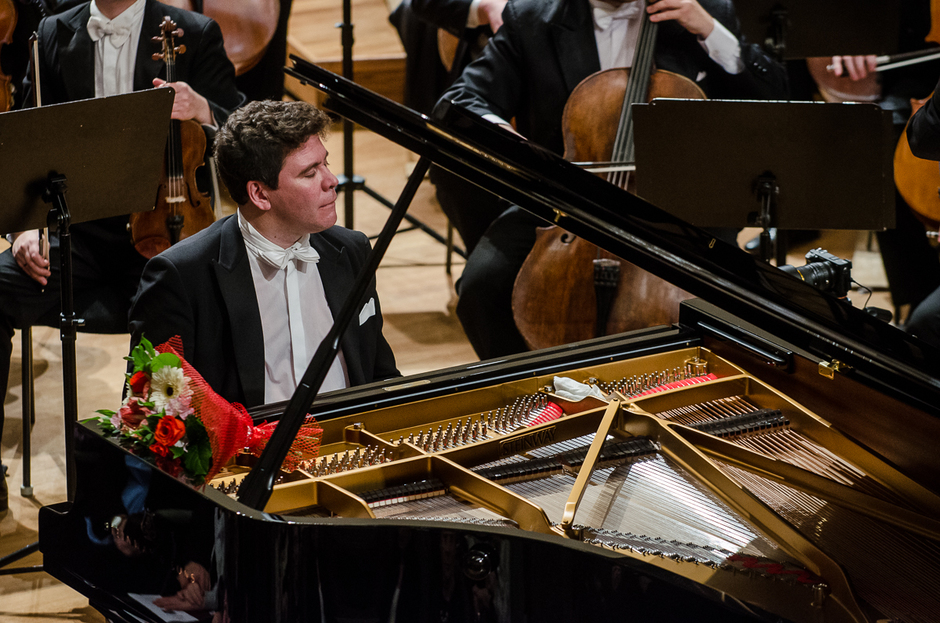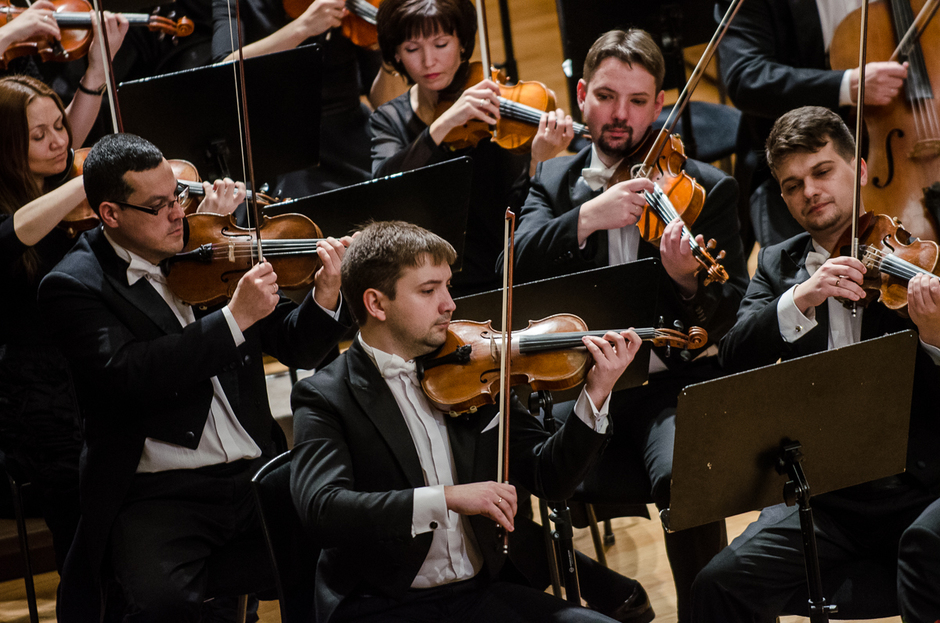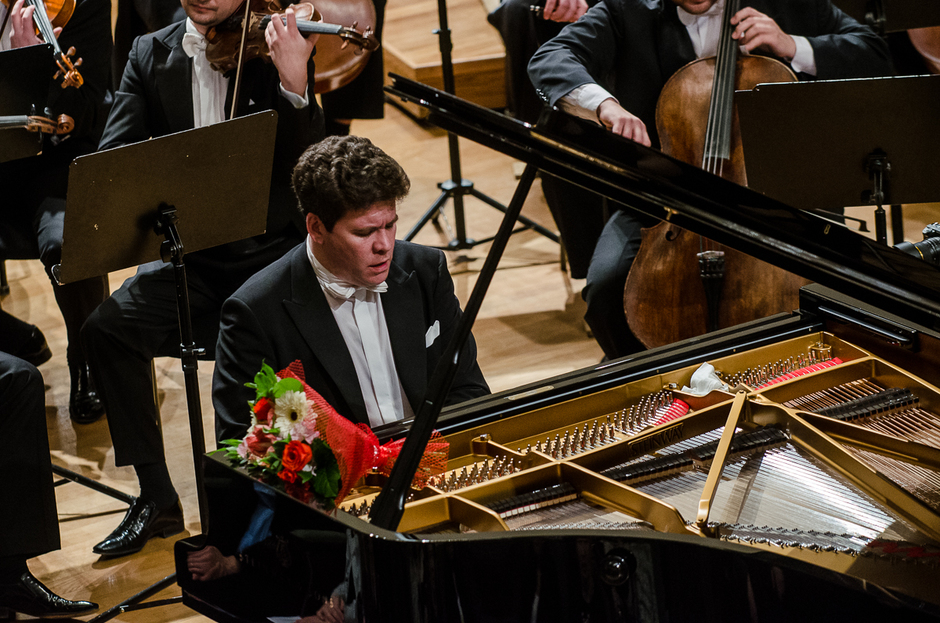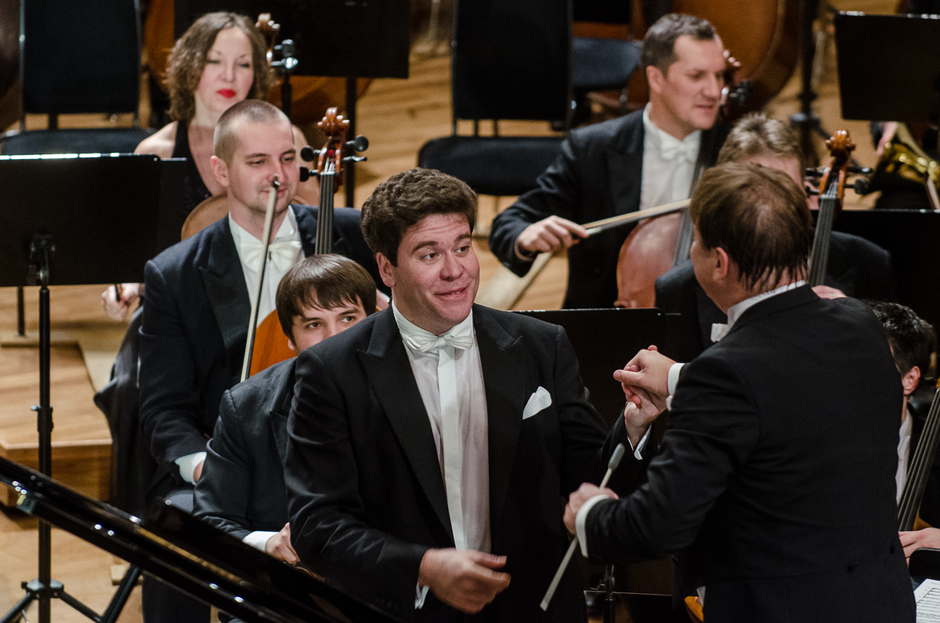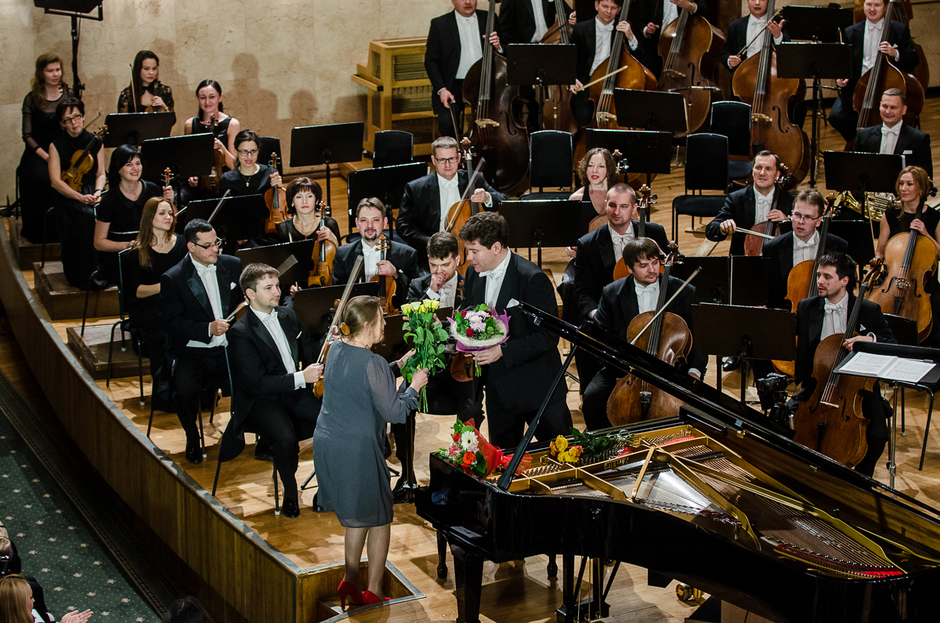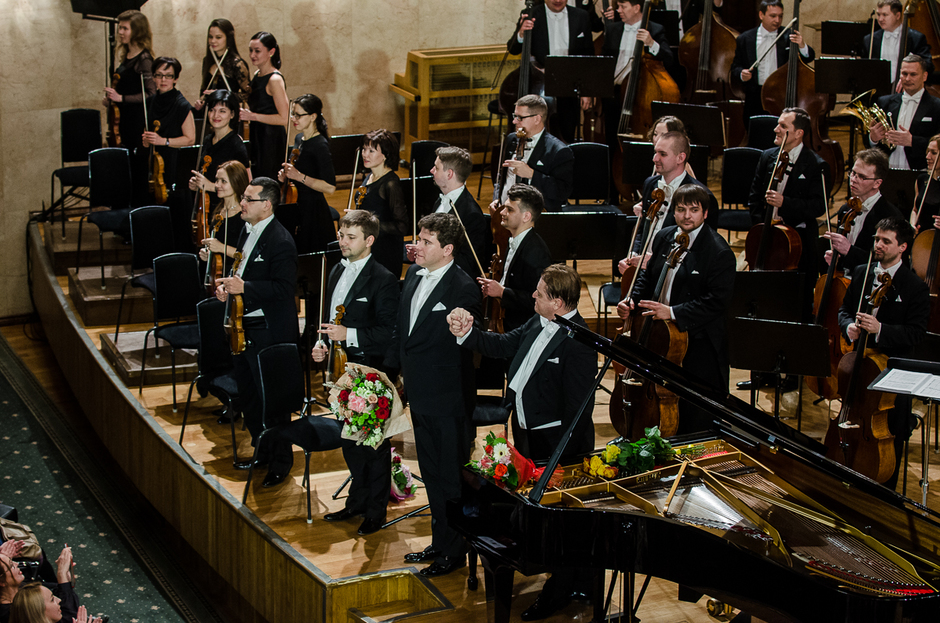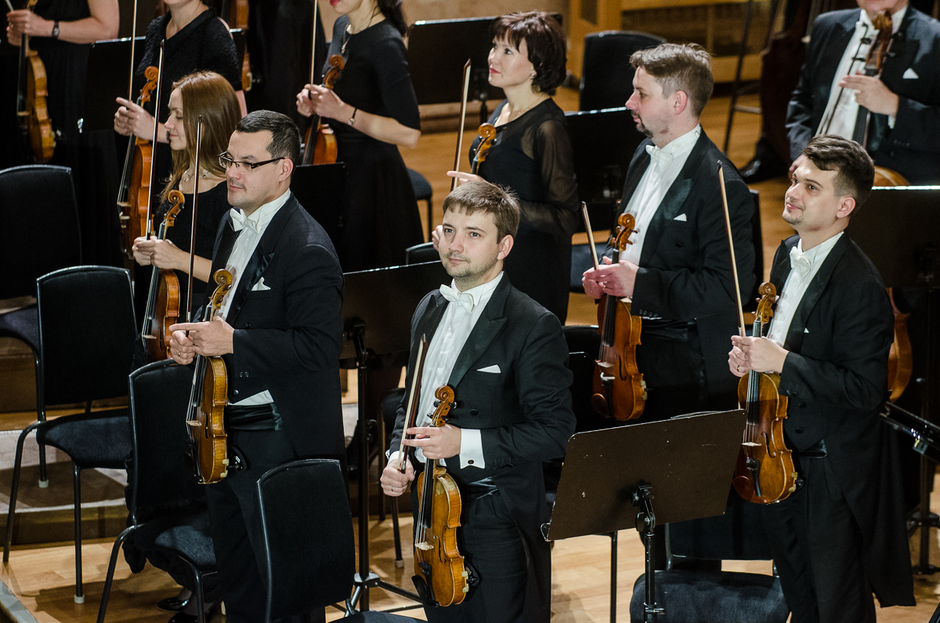Musical Kazan became almost like Vienna
The second and the last this year's festival Denis Matsuev Meets His Friends was a kind of sensation: the State Symphony Orchestra of Tatarstan and maestro Sladkovsky performed a two-part programme. It is a programme that will be presented in the main concert hall of Vienna Musikverein in several days.
To Vienna!
In Europe, people tell that to be in the 'gold hall' — Musikverein — means to acquaint with musical Vienna at the highest quality level. The programme that citizens of Kazan heard on 27 November has a direct link with this 'highest quality'. In fact, the orchestra presented its absolutely prepared concert programme that the savviest Vienna listeners will hear.
The programme consists of 'three whales' of the Russian classical music — Glinka, Tchaikovsky and Musorgsky. Broad goods, real Russian scale but without any sentimental and artificial style à la Russe. Everything is pure and serious.
The concert tour in Western Europe will take one week. Apart from Vienna whose concert will be the culmination, there were included halls of Kufstein, Linz, Basel, Karlsruhe. Together with the State Symphony Orchestra of the Republic of Tatarstan, soloists Valentina Lisitsa and Denis Matsuev will perform there. Their performances made the spectators of the State Great Concert Hall of the Republic of Tatarstan named after Saidashev leave their comfort zone and experience minutes of high emotional tension.
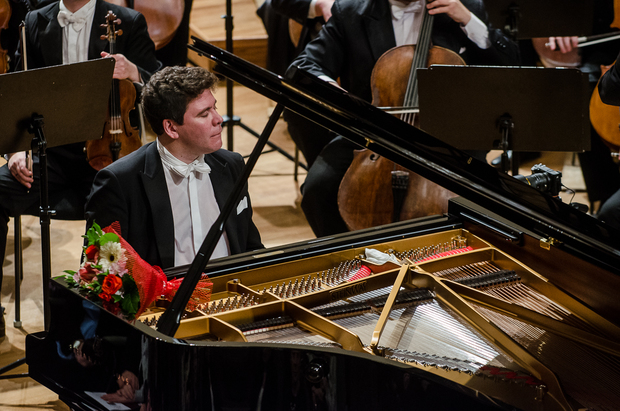
However, at the media scrum, which was held one day before it, Denis Matsuev noted that we should not make the performance in Musikverein a sensation because every performance is a responsibility for a musician. Probably Matsuev is right. But the concert of the orchestra in Musikverein is inclined to be a sensation because the collective from Kazan is consequently and confidently cementing a seat in the higher echelon of the Russian symphony orchestras. It is what one could not even dare to imagine 6 years ago.
From the Hall of the Mountain King to Kiev
Another gimmick of the Sunday concert was that Yulian Makarov from Culture Channel was its presenter. Perhaps there is no person who has never seen his programme Major Role. The information given by Makarov was interesting and presented very gently.
The concert began smugly — with Mikhail Glinka's overture to Ruslan and Lyudmila opera. The Russian daring, tale of sense, if not of truth, and 'coloured sleeve of a woman, rain and future sun' like Blok wrote about Russia — everything was found in this music that both the musicians and maestro Sladkovsky felt. Glinka's overture in this context will become a kind of landmark for Europeans.
Then it was Denis Matsuev's turn — he played a solo part during the performance of the Piano Concerto No. 2 by Pyotr Tchaikovsky. It would be banal to speak about Matsuev's phenomenal technique. The pianist performed all the three so different parts of the concert with a maximum tension and coped with all the reefs of Tchaikovsky's concert as virtuoso. And these reefs in this composition are endless.
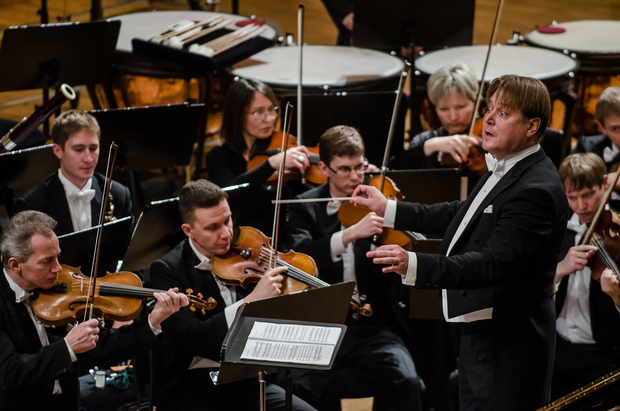
It seemed that sometimes Matsuev competed with the orchestra but sometimes they went hand in hand. Alexander Sladkovsky prepared Tchaikovsky's concert in a way that the heart either shrank from dramatic collisions or stopped from the gentlest lyricism.
The emotional tension in the hall was so strong that the audience forgot any decency and started to applaud right after the first part, which was a signal for two young guys who rushed towards Matsuev with bunches of flowers. The flowers were accepted, and the performance of the second concert continued.
Like in the first evening of the festival, Matsuev played more as an encore. Grieg was performed freshly and unusually, In the Hall of the Mountain King was tragic and funny. Here Leo Tolstoy's words about Leonid Andreyev can be used to characterise the performance: 'He terrifies but I am not afraid'.
Pictures at an Exhibition by Musorgsky was the second part. Ten different plots, different characters and different collision. There was room for manoeuvre for maestro Sladkovsky with his illustrative nature of an actor. How his hands flew, how his blond forelock on his forehead disappeared by a quick nod, how he transformed with one unseen motion and how the orchestra caught his transformations!
The Bogatyr Gates in the Capital in Kiev is the anthem of Russia, the anthem of the 'mother of Russian cities'. A powerful sound of the orchestra 'flooded' the hall. It was the end of the programme when the hall stood up and applauded for a long-long time, and the orchestra did not make itself ask more and took encores.
It is difficult to imagine how respectable Vienna listeners will be able to handle this storm of emotions, the daring and breadth of the soul that became real in Musorgsky, Tchaikovsky, Glinka's music performed by maestro Sladkovsky and his orchestra who did their best.
